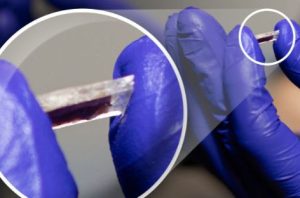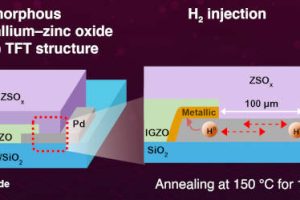
It follows a pressure sensors the same team made from single-crystalline gallium nitride, whose sensitivity dropped off above 350°C.
“The team believed the decrease in sensitivity was due to the bandgap not being wide enough,” according to Houston. “To test the hypothesis, they developed a sensor with aluminium nitride.”
And, after dealing with the technical challenges of synthesising and fabricating quality flexible thin-film AlN, it worked – producing a device which has “the highest operation temperature among the piezoelectric sensors”, said researcher Nam-In Kim.
The sensor output voltages from 73.3 to 143.2mV in response to variations of 50 to 200psi at 800°C.
Beyond this, a decrease in diaphragm Young’s modulus and the generation of free carriers degraded performance somewhat.
The researchers also made polycrystalline AlN and single-crystalline GaN thin films for comparison.
AlN offers substantial chemical, thermal stability and strength, and nuclear facilities could benefit, according to the research team, as AlN sensors can operate in neutron-exposed atmospheres.
The work is published as ‘Piezoelectric Sensors Operating at Very High Temperatures and in Extreme Environments Made of Flexible Ultrawide-Bandgap Single-Crystalline AlN Thin Films‘ in Advanced Functional Materials.
 Electronics Weekly Electronics Design & Components Tech News
Electronics Weekly Electronics Design & Components Tech News


